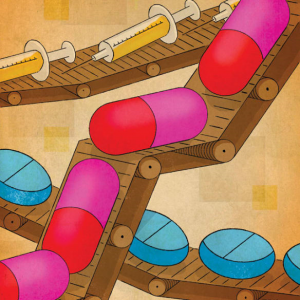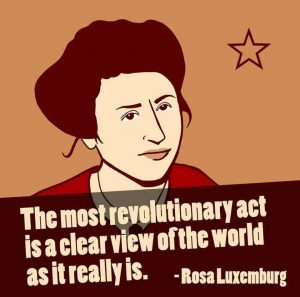
An antimalarial drug called Hydroxychloroquine (HCQ) has become a valuable commodity in the COVID-19 infected world. While its effectiveness against the novel Corona virus is yet to be scientifically proven, there has been a surge in its demand in the last two weeks, with the US Food and Drug Administration (FDA) issuing an Emergency Use Authorization for certain cases. The President of the United States of America has been a significant subscriber of the potential of this drug, suggesting that it could be a “gamechanger”, a “gift from the heaven” and other such rhetoric, in the country’s fight against its epidemic which has infected 401,608 Americans and claimed 12,902 lives (COVID-19 Tracker, Microsoft Bing, 08/04/20).
India, a well-known pharmacy of the world, is the largest manufacturer of this drug. It has been supplying this drug to the world, along with providing for its domestic use to vaccinate people against malaria and treat patients of autoimmune diseases such as rheumatoid arthritis and lupus. Before an Indian company started manufacturing HCQS, importing the hydroxychloroquine drug had been extremely expensive, often leaving patients in Indian to be treated with an ad hoc combination of drugs along with steroids. Once the domestic manufacturing started, many Indians found an affordable and accessible option to treat their lifelong illnesses. It is no surprise therefore, that hydroxychloroquine has been added to the 2011 National List of Essential Medicines in India.
What does come as a surprise to many though, is the commodification of this drug at a time when the world is reeling under a pandemic. A crisis at such a global level has uncovered the bullying tendencies of countries such as the USA, with Donald Trump warning of ‘retaliation‘ if India does not supply it with the HCQ drug. The Indian government, under pressure by Trump and his administration, has reversed its short-lived export ban on the 14 drugs along with Paracetamol and hydroxychloroquine.
This is not the first time though that India has given into the pressure by countries in the Global North. According to the 2018 Global Hunger Index, India stands at rank 103rd put of 119 qualifying countries. Its per capita availability of foodgrains per annum remaining less than 200 kilograms (Economic Survey annual report, 2018). This is in high contrast to countries like USA with 1,200 kilograms of foodgrain per capita availability recorded in the year 2015. However, India has continued to increase its food-grain production with a record of 283.37 million tonnes produced in the year 2018-19. However the numbers above show that the surplus in the production has not been equally distributed to its own people. Instead India has continued to export the food grains while at the same time importing pulses, despite reaching self-sufficiency levels. The Indian government has feared ‘negative repercussions‘ in case of breaking these trade deals with the exporting countries.
Since the economic reforms of 1991, India became the net exporter of agricultural products. When its own cotton farmers were committing suicide in Vidarbha, a district in the state of Maharashtra, the Indian governments at both the centre and the state denied taking responsibility of pushing its farmers to export oriented cash crop cultivation, without providing them a safety net from the price volatility of the global market. P Sainath, an expert on the Indian agrarian crisis, noted, “The subsidies in the cotton world are amongst the worst in the world which are dominated in the United States and the European Union, destroying cotton economies from Vidarbha to Western African countries such as Mali, Chad, Burkina Faso and Benin”.
The current power display of countries such as the USA to procure HCQ supplies for its own citizens is disgusting as it gets but is nothing new. Instead it sheds light on two important factors: a) the state of public health infrastructure in the USA and its hunt for a miraculous drug to fight the COVID-19 epidemic and, b) the impact on the working class and poor in the supply side India. Media reports show that the Indian government has placed an order for 100 million HCQ tablets from IPCA Laboratories and Zydus Cadila, assumed to be supplied to other countries including the USA. Analysts claim that India can produce 200 million tablets per month. However, the supply of the critical active pharmaceutical ingredient (API) for the manufacture of this drug is under a tight control by China. The price for HCQ API has already doubled to around 2000 USD per kilogram. Several estimations are being made if China is going to place greater controls in case the demand for the drug surges.
It is clear from the current scenario that there will be a few winners and many losers out of this diplomatic arrangement. The Indian Drug Manufacturers’ Association has overwhelmingly supported the export of HCQ drug and a high revenue generation is estimated for one of the manufacturing companies IPCA Laboratories. The Indian government continues to allow its corporate elite to profit from the crisis and allows its international trade relationship such as import of crude oil from Iran, defence system equipment from Russia and others to be dictated by American imperialism. USA is also India’s largest energy supplier.
The Indian government has without any doubt created a system of exploitation for the benefit of the domestic and global capitalist class. It has once again bowed its head to its imperial masters and put the lives of its vulnerable at risk. In a country where the condition of the public health infrastructure is extremely poor, its public distribution system ghastly, to further auction its essential drugs such as hydroxychloroquine, which could be used as a prophylaxis for health workers and those at the forefront of the pandemic, is a crime against humanity. HCQ might not have been clinically proven as a treatment for COVID-19 but the mere fact that USA wants to loot and plunder our essentials, with the approval of the Indian government, must awaken every apologist of the free trade regime.
